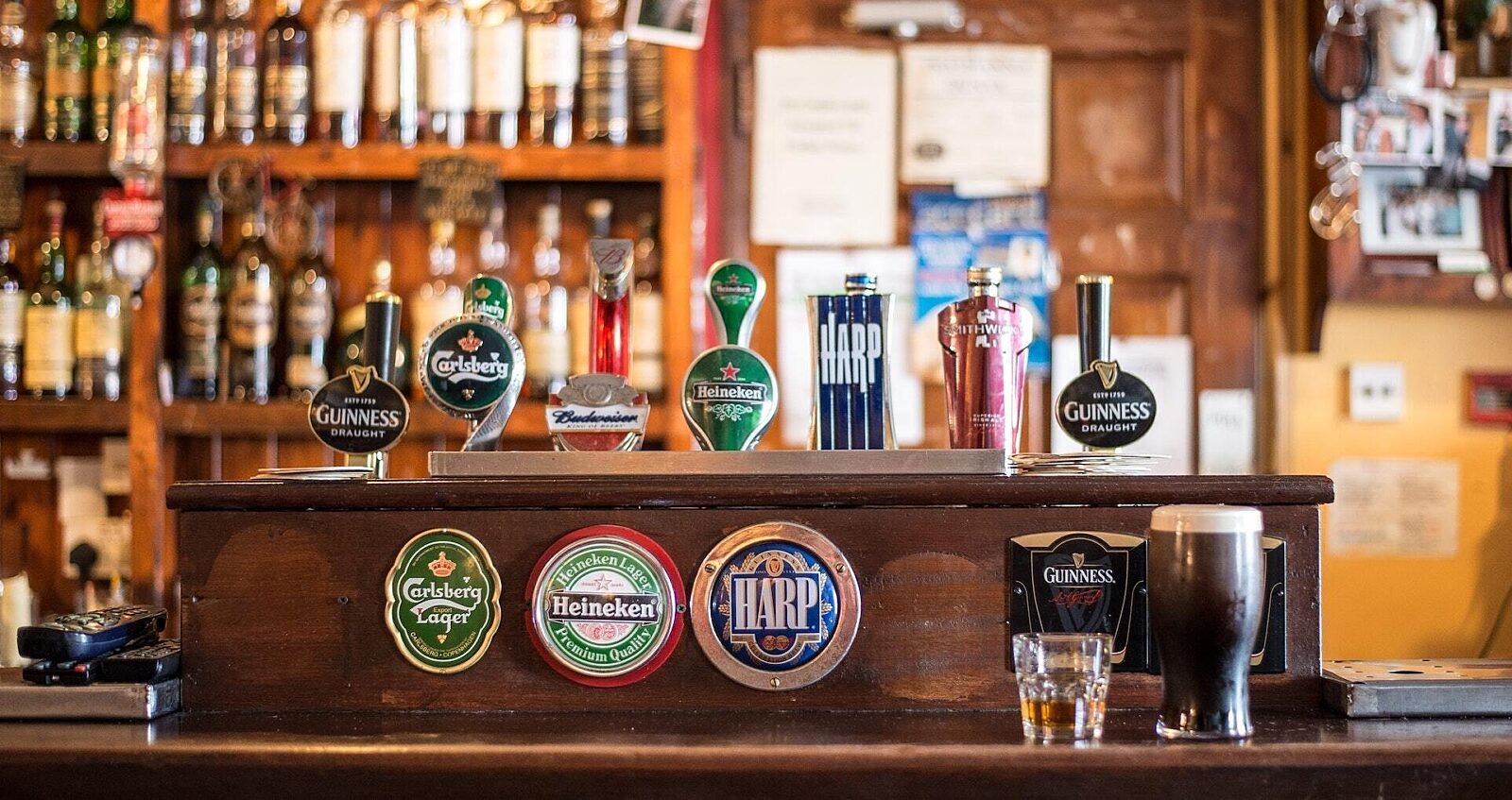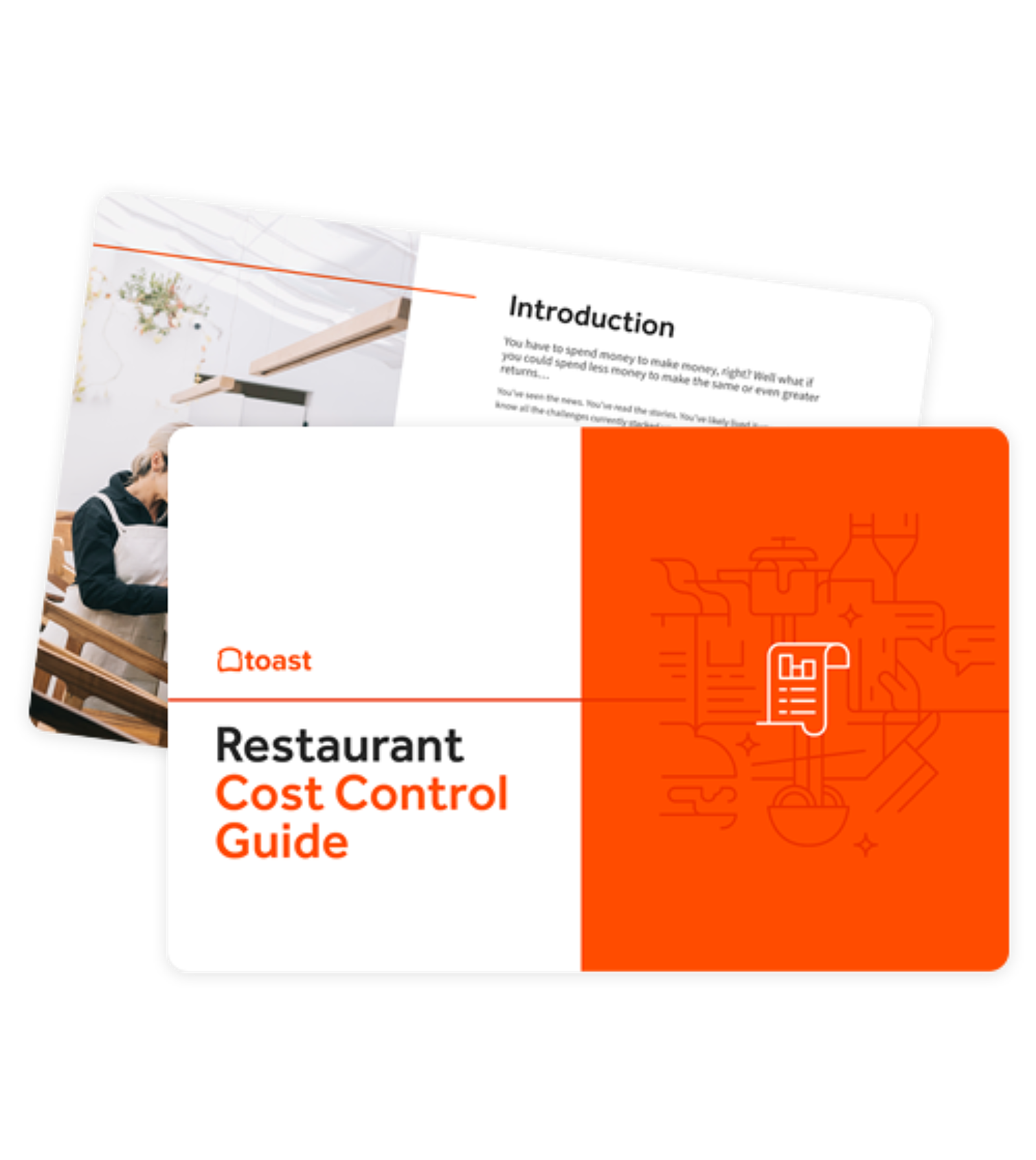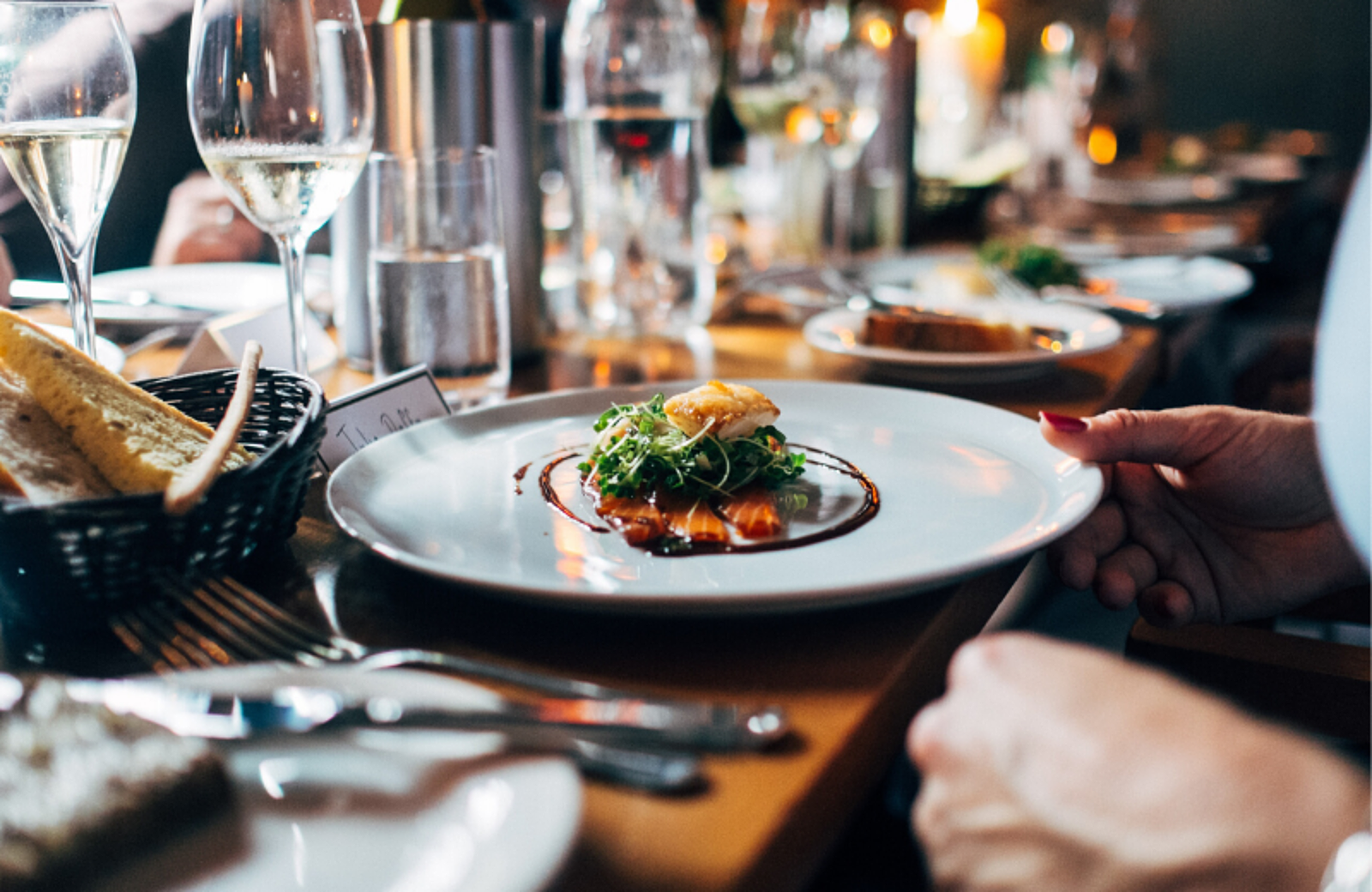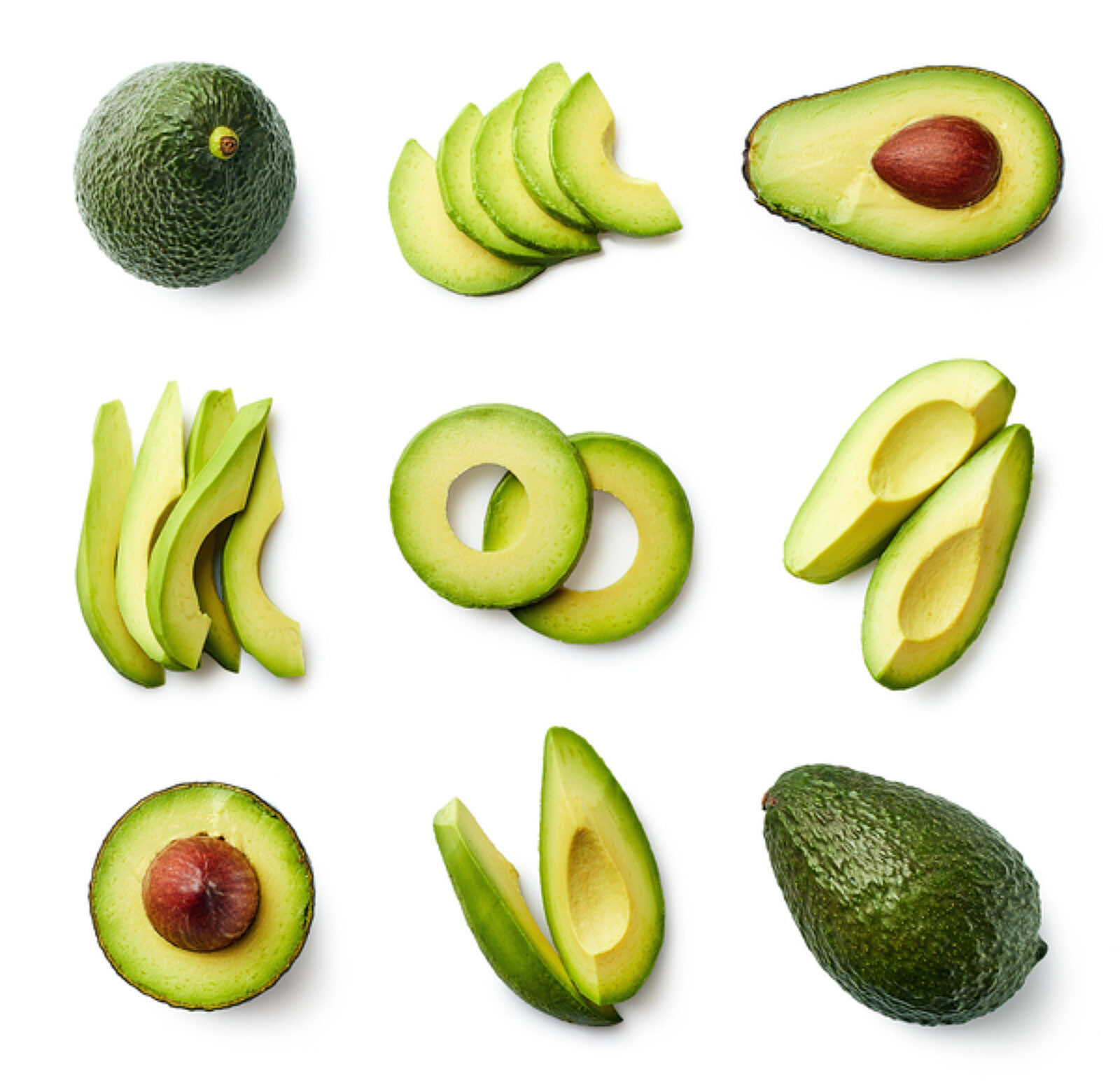
Bar Accounting Guide: Bookkeeping Tips for Bar Businesses
Understand the critical components required for a successful accounting and bookkeeping program at your bar.

Nick PerryAuthor


Restaurant Cost Control Guide
Use this guide to learn more about your restaurant costs, how to track them, and steps you can take to help maximize your profitability.
Get free downloadBar Accounting Guide: Bookkeeping Tips for Bar Businesses
The beer industry is valued at $120.6 billion, with expectations to grow 4.77% per year through 2027. By that point, it’s estimated that 45% of all beer consumption will take place outside the home, in places like bars. And that’s not even accounting for the wine and liquor drinkers.
Suffice it to say, it’s probably good to be a bar business owner.
All that money coming in and so many expenses to balance, it’s absolutely vital to have a strong financial accounting strategy.
At 80%, the average bar profit margin is significantly higher than the typical restaurant profit margin, which makes it all the more important to make sure your profits are being properly reported. Great accounting helps you do that.
In this article, you will learn how to find the right accounting solutions for your bar, helping you to control costs, keep track of operational finances, and meet financial goals.a
Bar accounting 101
First off, let’s define the difference between accounting and bookkeeping.
Bookkeeping is the daily tracking of how much your bar spends versus how much it makes.
Bar and restaurant accounting is the interpretation and presentation of that data to draw larger insights over time and act against a financial plan. Your restaurant bookkeeping, therefore, has a direct impact on your accounting, which is why a bar point-of-sale (POS) system is vital.
A tool like Toast’s POS system, can seamlessly and automatically manage each day’s bookkeeping and level up to larger financial health insights — all while also helping provide great experiences for your guests and employees.
With your bookkeeping taken care of, your bar accounting will be much easier. Strict accounting will help you better price menu items, track and distribute profits, and could even improve staff retention.
Bar business accounting considerations
Here are some of the accounting considerations you must think about when exploring your bar accounting options — whether your a new business, a growing small business, or have multiple locations.
Payroll: Depending on the size of your bar, you my have a large staff working a complicated schedule. Your payroll will be dictated by hourly employment and the hours you schedule. Accounting helps you stay on top of it.
Food costs: There’s a big difference in managing cases, bottles, and cans compared to intricate details for all menu item ingredients. If you have a food menu, be sure your restaurant-specific accounting systems are built to manage it.
Tip handling: Tipping is part of everyday life at a bar, so you must figure out how to distribute tips to staff and avoid treating these incomes as profit.
Inventory management: Waste is money, so every bar wants to reduce waste. That comes down to effective inventory management.
Cash flows: Cash flows through your business in myriad ways, from paying employees, ordering supplies, or managing operational expenses. Good accounting is crucial to understand where your money goes.
P&Ls: Profit and loss statements are some of the most important accounting statements for your bar.
Outsourced vs. in-house bar accounting
There are pros and cons to both hiring an in-house bar CPA or an outsourced one. Let’s examine them.
Pros of an in-house accountant
Close personal knowledge of your business: A full-time in-house accountant will get to know your bar well. They’ll spend time in both front and back of house, learning how the bar operates, and how money flows through the business. As such, they’re great resources to help you identify waste and innovation opportunity.
Quality assurance: An in-house accountant that you’re working with every day will have higher expectations from you. You’ll also be able to more easily audit their work and ask questions.
Easy feedback loop: In addition to quality assurance, you’ll have an easy feedback loop with an accountant you’re seeing in-person every day.
Cons of an in-house accountant
Expensive: The primary reason a bar wouldn’t have an in-house accountant is cost. Even a part-time dedicated accountant will cost a pretty penny.
Overwork: A growing business has growing demands, especially for an accountant. Managing the books for your bar may prove to be too much for a single in-house accountant, and you don’t want an overworked accountant.
Pros of an outsourced accountant
Budget-friendly: Outsourcing is always more budget-friendly than bringing in someone full-time. There are bar accounting services out there that will let you customize a service plan for your business.
Flexibility: Depending on what you pay for, you may have several accountants on your team at once, which allows you to get the help you need from a range of people at all hours of the day.
Cons of an outsourced accountant
Effort: Any outsourced accountant won’t get to know your business the same way an in-house accountant would. You may have to over explain line items sometimes to help them understand your business.
Lack of personal touch: Don’t expect an outsourced accountant to come up with any ingenious ideas for your bar. You’re not their only client, they don’t have the investment that you do.
Which accounting method is right for your restaurant
There are three primary accounting methods: Cash, accrual, and modified cash-basis.
In the cash method, revenue and expenses are recorded when they’re received and paid. Accrual method records revenues and expenses when they occur, but before they’re received and paid.
Typically, restaurants and bars use cash accounting or a version of modified cash-bases accounting because they’re recording revenues as soon as people pay for their food or drink.
Beyond accounting methods, any bar owner should know the key financial statements needed to understand your bar’s financial plan. This plan should be an offshoot of your bar’s business plan and feature three primary financial reports: the income statement, balance sheet, and cash flow statements.
Income statements should be updated daily to reflect your bar’s incomes. Balance sheets track your bar’s assets, liabilities, and equity, which may change over time and include leases or mortgages, equipment, debts, and more. Cash flow statements illustrate you money comes into your bar as income from cash and credit card transactions and goes out of it as expenses.
Restaurant profit and loss statements, or P&L, is another critical bar accounting report. Your P&L gives a high-level look at your profitability over a given time period. It’s based on your chart of accounts, which is a coded list of all of the liabilities, assets, expenses, and income that go in and out of your business.
Beyond P&L, it’s also critical to understand your restaurant cost of goods sold, or COGS. The measure tells you how much you are spending to on what your selling across your bar operation.
Managing and tracking these statements is easier with a bar accountant or bar accounting software.
How to pick an accountant
If you think you’d prefer to hire an accountant rather than use a bar accounting software, here’s what to think about.
Accountant affiliation
When searching for an accountant, your budget and the relationship you’d like to have with said accountant are your two biggest determining factors. While firms are less expensive, they won’t have that same personal touch. So, what’s most important to you?
Accounting requirements
How much work do you have for an accountant? Freelancers and accounting firms charge by the hour, so the more you need them, the more you’ll pay. You’ll pay even more if you’re expecting to work with more experienced accountants.
That said, you can save some money by using more junior accountants at a firm to handle your day-to-day bookkeeping or smaller tasks like invoice processing. When it comes time to get into more complex projects, like calculating plate costs, you can hire a more senior accountant then.
Specialization
There are many accountants with restaurant experience, but you want to make sure that your accountants have experience in the bar business or at least the hospitality industry. Bars operate different from restaurants, and cash flow is different, as well. You want someone who knows how it all works.
Software familiarity
You want any bar CPA you hire to be using accounting software. These management systems can help automate and streamline high-level and real-time insights accountants provide to bar and restaurant owners.
Consider if you have an existing general ledger and whether that is transferrable to the software accounting system your new bar accountant uses.
How to pick a bar accounting software
If you’re tight on budget, it may make more sense for you to try handling your accounting yourself first, with the help of a bar accounting software. You can always bring in an accountant later. Your accounting software should cover:
Needs: Your bar accounting software should check all of the boxes of your accounting needs. From basic financial reports to automating invoices, performing recipe costing, tracking inventory, and more, the best options support both day-to-day bookkeeping and annual accounting.
Budget: Like accountants, bar accounting software comes in different plans. The more you pay, the more you get.
Complexity: If you know you’re going to hire an accountant to manage your bar accounting software, you don’t need to worry about complexity too much. If you plan to try running your accounts yourself, though, you want an intuitive program.
Flexibility: The best accounting software is cloud-based and mobile-friendly so you can access it absolutely anywhere.
Toast is the point of sale system built for bar owners — including key integrations with accounting software and built-in features around recording financial transactions, accounts receivable, more.
Business owners can go further by adding xtraCHEF by Toast into the mix — automating accounts payable and providing detailed COGS reviews that can support forecasting exercises.
Restaurant Invoice Automation Guide
Use this guide to learn more about your restaurant invoices, the value within, and how to consistently and accurately tap into it to make smarter decisions.

Is this article helpful?
DISCLAIMER: This information is provided for general informational purposes only, and publication does not constitute an endorsement. Toast does not warrant the accuracy or completeness of any information, text, graphics, links, or other items contained within this content. Toast does not guarantee you will achieve any specific results if you follow any advice herein. It may be advisable for you to consult with a professional such as a lawyer, accountant, or business advisor for advice specific to your situation.
Read More
Subscribe to On the Line
Sign up to get industry intel, advice, tools, and honest takes from real people tackling their restaurants’ greatest challenges.


